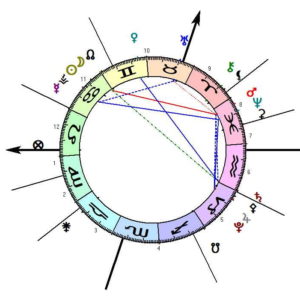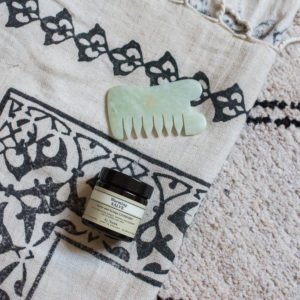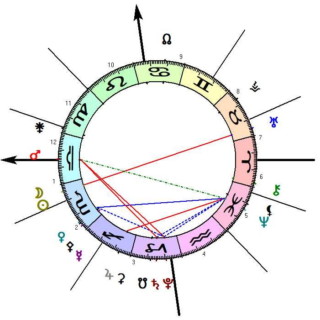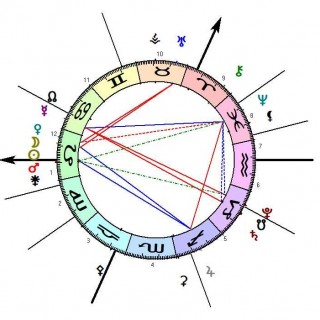In Chinese Medicine one significant part of the inseparable link between body and mind is each organ’s own spiritual or mental aspect. They are called Shen’s aspects.
My Chinese Medicine studies are progressing fast. The second year is the toughest, because not only there’s the clinical training but also so much new to learn and adapt this year. It means a lot of new things to remember. Chinese Medicine as a whole is huge, and there’s plenty to study for the rest of your life. To be able to digest new information and make progress, you need to learn the basics first. This year, I decided to write articles about some of my studies on my blog, because writing eases and deepens my own learning. I also believe you might find it quite interesting.
In the first article I will be writing about Shen’s aspects. The text is heavily based on the book Lohikäärmeen lääketiede by Elina Hytönen and study materials of Kiinalaisen lääketieteen akatemia (Finnish Academy of the Traditional Chinese Medicine) from which I have combined my own notes to support my studies.
The Vital Substances
In Chinese Medicine there are five vital substances. The well-being and function of the human body, mind, feelings and soul is dependent on the easy availability of these five vital substances. They are called Qi, Blood, Jing (Essence), Shen and Jin Ye (Body Fluids). In this article, I will focus on Shen and its five aspects.
Shen is a difficult word to translate but usually it means “spirit” or “mind”. Shen is born at the time of conception which is why it belongs to Prenatal Qi (which means the time before birth). Shen represents the deepest self-awareness and uniqueness. Shen is what makes us an individual, says Elina Hytönen in her book.
Shen is present in everything conscious and unconscious in human life, for example it keeps an eye on the development of organs in a fetus. It decides the vitality, basic condition and development of a person. Shen lives in the Heart and is aware of everything that happens in the person’s organs and body. (In Chinese Medicine for example organs start with a capital letter because it is believed that they have countless amounts of other functions compared to western medicine. The spelling outlines this difference.)
You can see the presence of Shen from the shine of a person’s eyes and face. The shine is called Shen Ming (the word Ming means shine but also brightness and clearness). You can see Shen as brightness in the eyes and as clearness in the skin when the body, mind and soul are in harmony and the person feels well.

The Five Shen
In Chinese Medicine one significant part of the inseparable link between the body and mind is each organ’s own physical, spiritual and mental aspect. Together these aspects form “the Shen”. There are five of these aspects: Hun, Po, Zhi, Yi and Shen of the Heart.
Hun – the vision provider that resides in the Liver
One of the five Shen is Hun – the ethereal soul that lives in the Liver. Hun is already present in the person before birth. It leaves the body after death and goes to Heaven together with Shen. The energy of Hun is very much yang, so it’s light and tries to go upwards and expand. For this reason, it needs the Liver-Yin who anchors it and brings peace for Hun.
Hun relates to imagination, visions and dreaming. The Hun plays a part in our dreaming, subconsciousness, creativity, visions, finding our goals and the meaning of life, and in the courage to fulfill our ideas. Hun moves at night and, it is said that when we sleep the Huns (there are three of them) “meet” and travel to “another world” from where they deliver messages to us via dreams. The disturbances of the Hun are related to restless sleep, excessive dreaming, sleepwalking, and also Liver problems. When the Liver Blood is plentiful, the Hun is peaceful, and the person sleeps well.
If Shen is too weak to “assemble” the Hun, our good ideas are useless, and our projects won’t happen. When the Hun moves too much it causes manic behaviour, and the mind can be confused and chaotic. In turn, when the Hun doesn’t move enough it causes depression, and the person can be without goals and dreams.

Po – the corporeal soul that resides in the Lungs
The Po is associated with Yin and it comes from the Earth unlike the other Shen’s aspects that come from Heaven. The Po (there are seven of them) stays alive only while the person is alive, so it’s connected to the body. The Po is known as the “corporeal soul” that’s connected to body functions, senses, respiration, heart rate, digestion, and keeping the person alive.
The Po is mainly active during the day and in a way makes sure we don’t hurt ourselves. The Po also helps the person to accommodate different situations. The Po is closely linked to Jing (Essence). The Po helps Jing move so that it can nourish all the body’s functions.
The Po is also associated with the senses. It helps the person to feel physical sensations and to hear and see. Pain and itching of the skin are felt by the Po, which explains why we can see changes in our feelings in our skin.

Zhi – willpower that resides in the Kidneys
Huns and Pos are spiritual beings, Zhi and Yi are mental instead. Zhi lives in the Kidneys, is Prenatal Qi, and it gives the person a drive to be alive. Zhi represents willpower and is considered to be the force that helps the person to achieve his goals. The willpower of the Kidneys represents orderliness in life, the Gallbladder is connected to daily decision making instead.
In addition to will, Zhi is connected to a sense of direction, orderliness and resilience. Zhi is also responsible for remembering events from the recent past.
The word “Zhi” means will, wish, aim and aspiration. A person can be called wise when he has strength, ability, wit and skill to live and do his job well. A person also needs to have willpower that helps him to reach his goals. However, too much ambition wears Zhi out. If Shen is weakened and unable to consider values, turning our will into action can also become harmful.

Yi – thought and intellect that resides in the Spleen
Yi is Postnatal Qi (happens after birth) that leads thinking, pondering, remembering, concentrating, learning, and memorising things. Yi, who lives in the Spleen, is responsible for remembering detailed information about our jobs, specialties, and studies.
Yi gives form to imagination, visions and inspiration that come from the Liver. It represents thinking and thoughts, and Si (thoughts) lives in the Spleen. When the Spleen is strong, thinking is clear and the ability to concentrate is good. If the Yi is unbalanced, thinking is disturbed, memory gets worse, thoughts go around in circles and the person can suffer from brain fog.
Overthinking, brainwork and worrying harm the operation of the Spleen and also weaken the Yi.

The Shen of the Heart – consciousness, intelligence and wisdom that resides in the Heart
The Shen of the Heart is aware of the spiritual well-being all of the other organs as well as all the feelings that are connected to the organs. In Chinese Medicine, it is believed that feelings can cause internal illness and vice versa. The Heart collects all the body’s feelings with the help of the Shen, reflects and feels them – this is why all feelings affect the Heart.
The Shen of the Heart is connected to all mental functions of the person like thinking, remembering past things, consciousness, insights, considering values, intelligence, wisdom, ideas, dreams, and the ability to focus on ourselves.

Sources:
Elina Hytönen: Lohikäärmeen lääketiede – Kiinalaisen lääketieteen perusteet
Finnish Academy of the Traditional Chinese Medicine: study materials
Photos Kaapo Kamu
Translation Hilla Hautajoki














